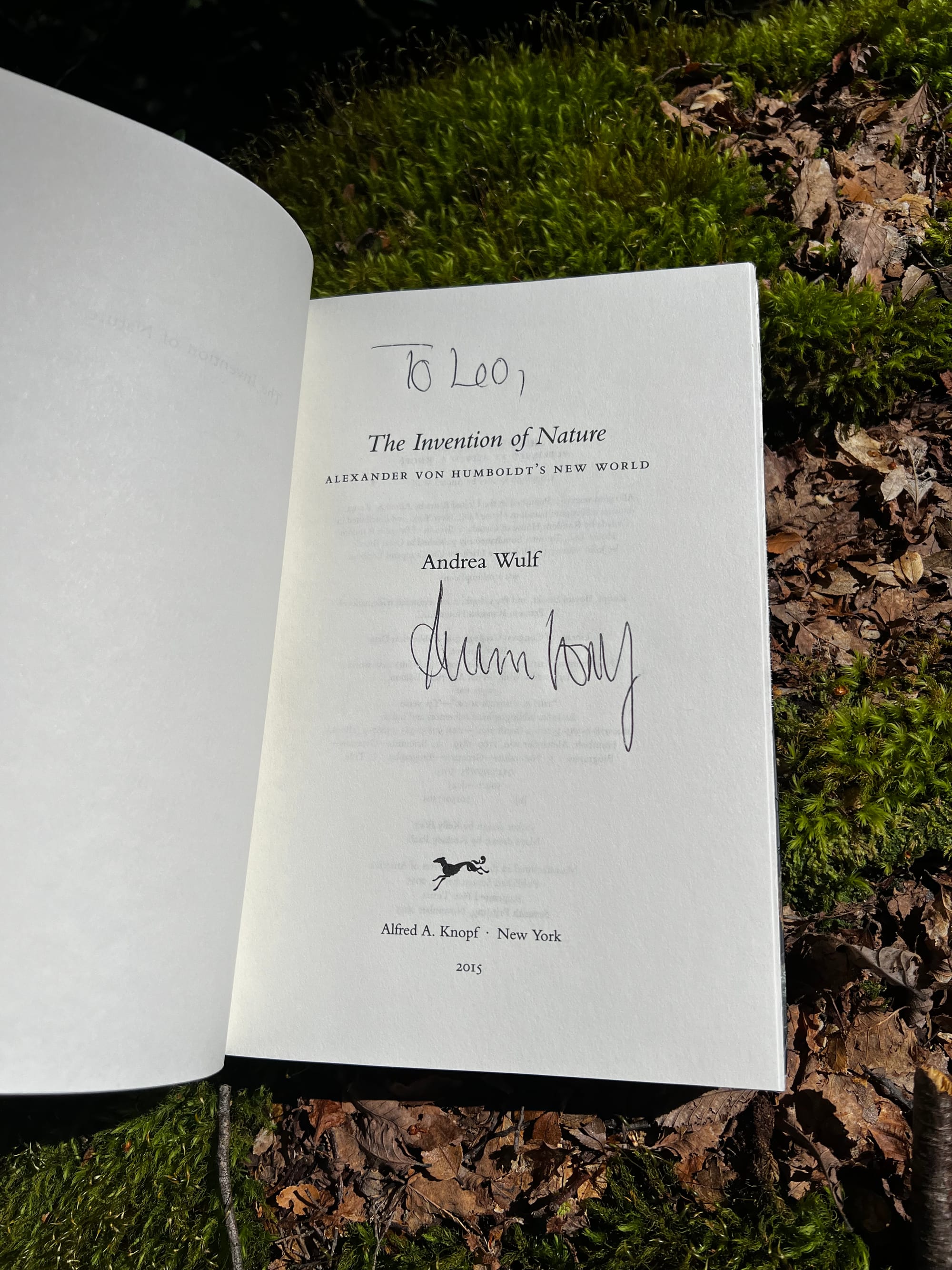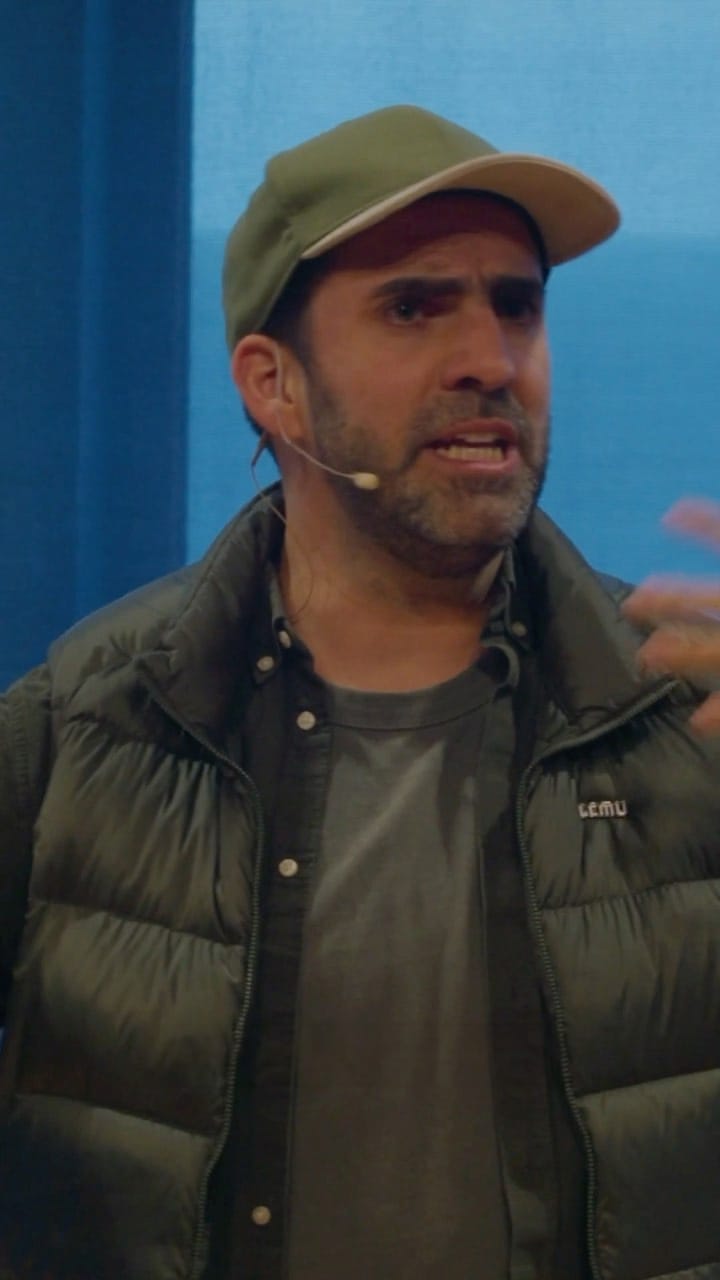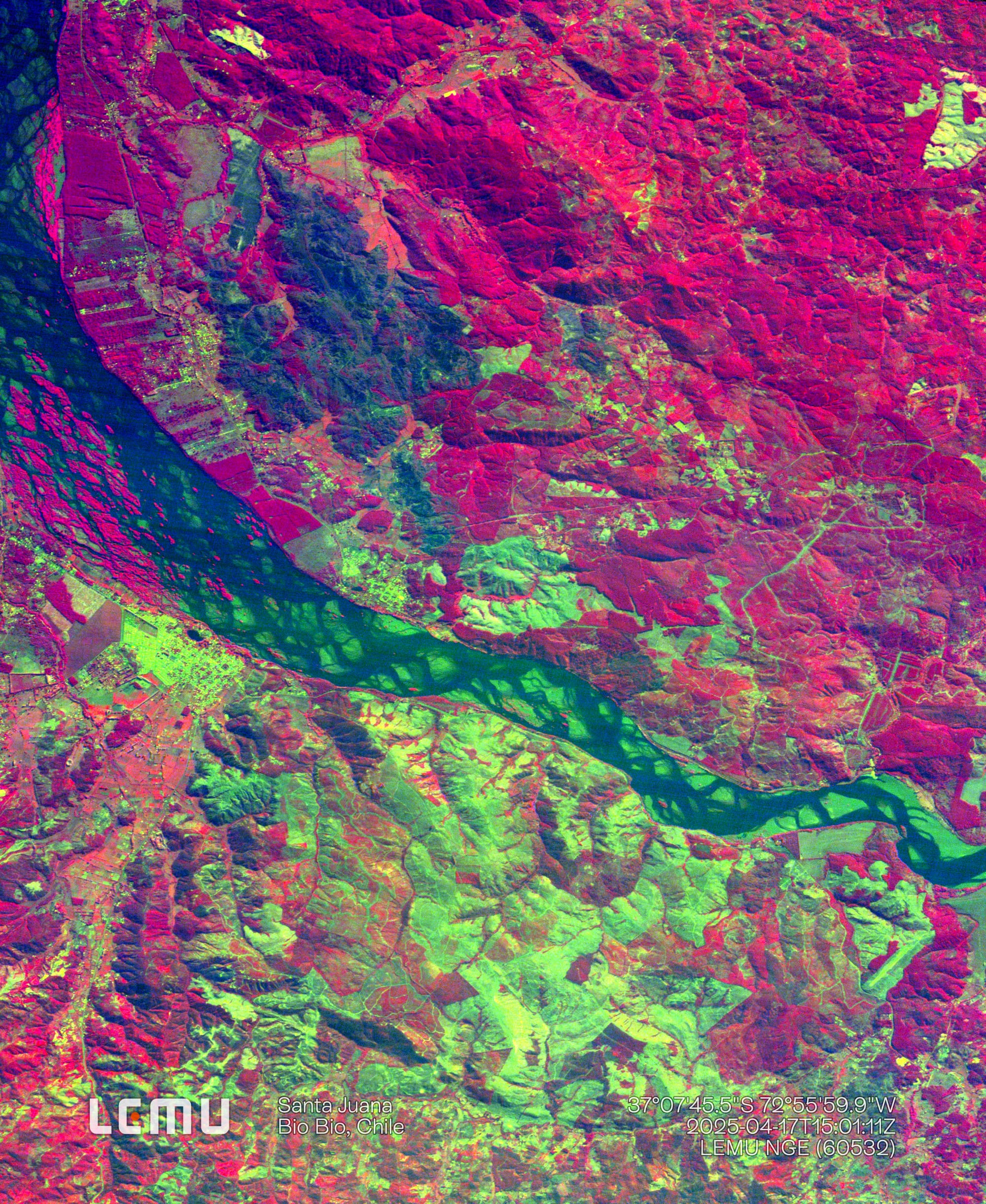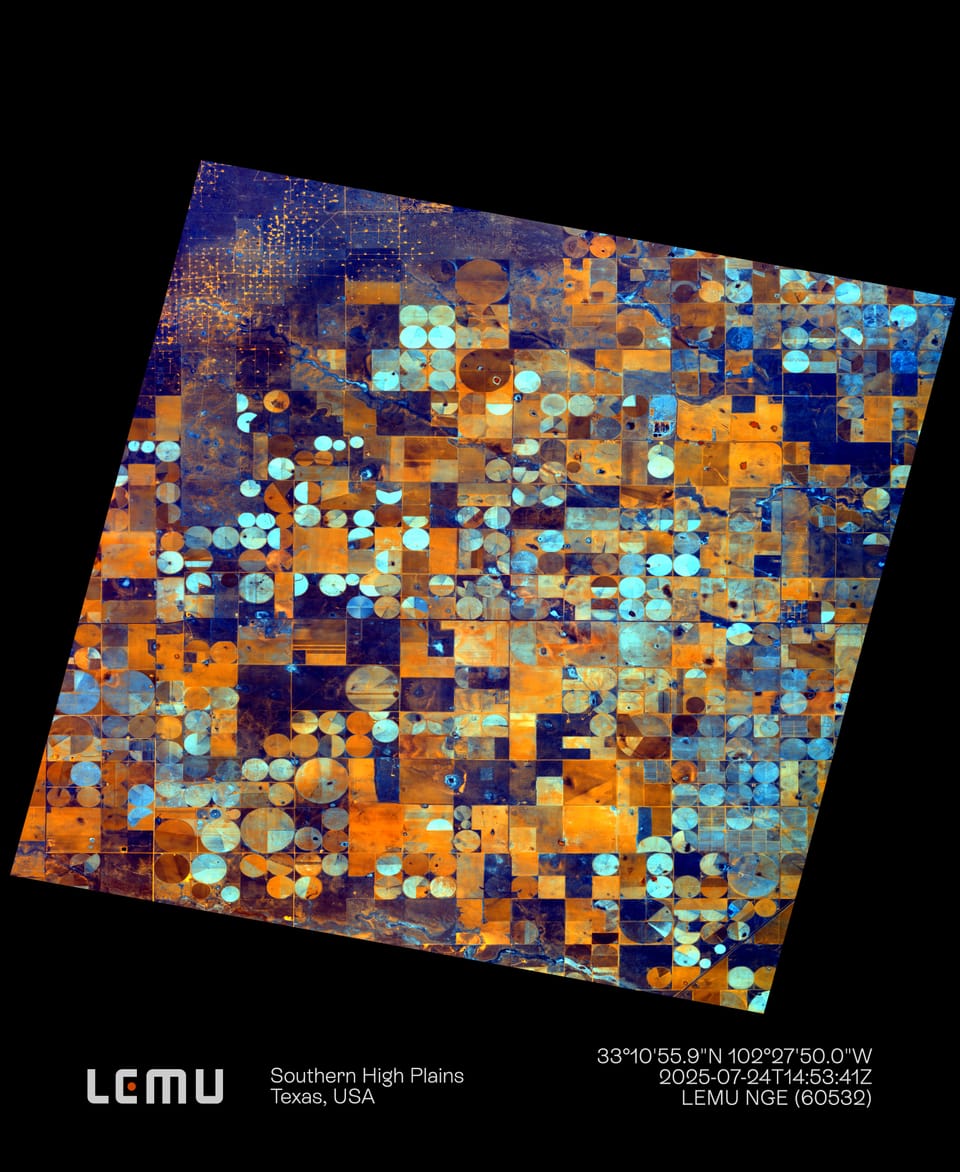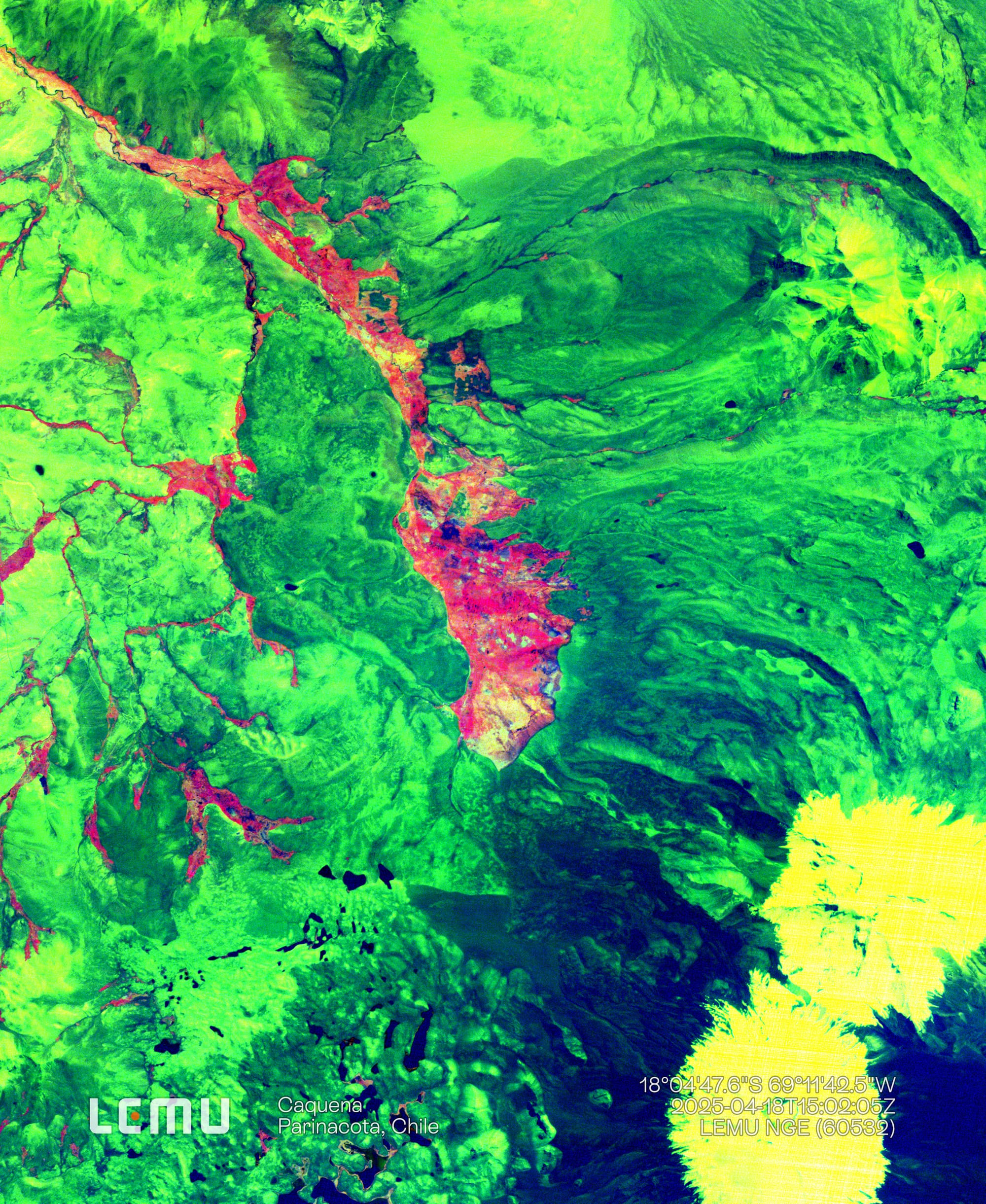The Invention of Nature (2015)
What do Bolívar, Bonaparte, Darwin, Goethe, Jefferson, and Thoreau have in common? The scientist and explorer Alexander von Humboldt.
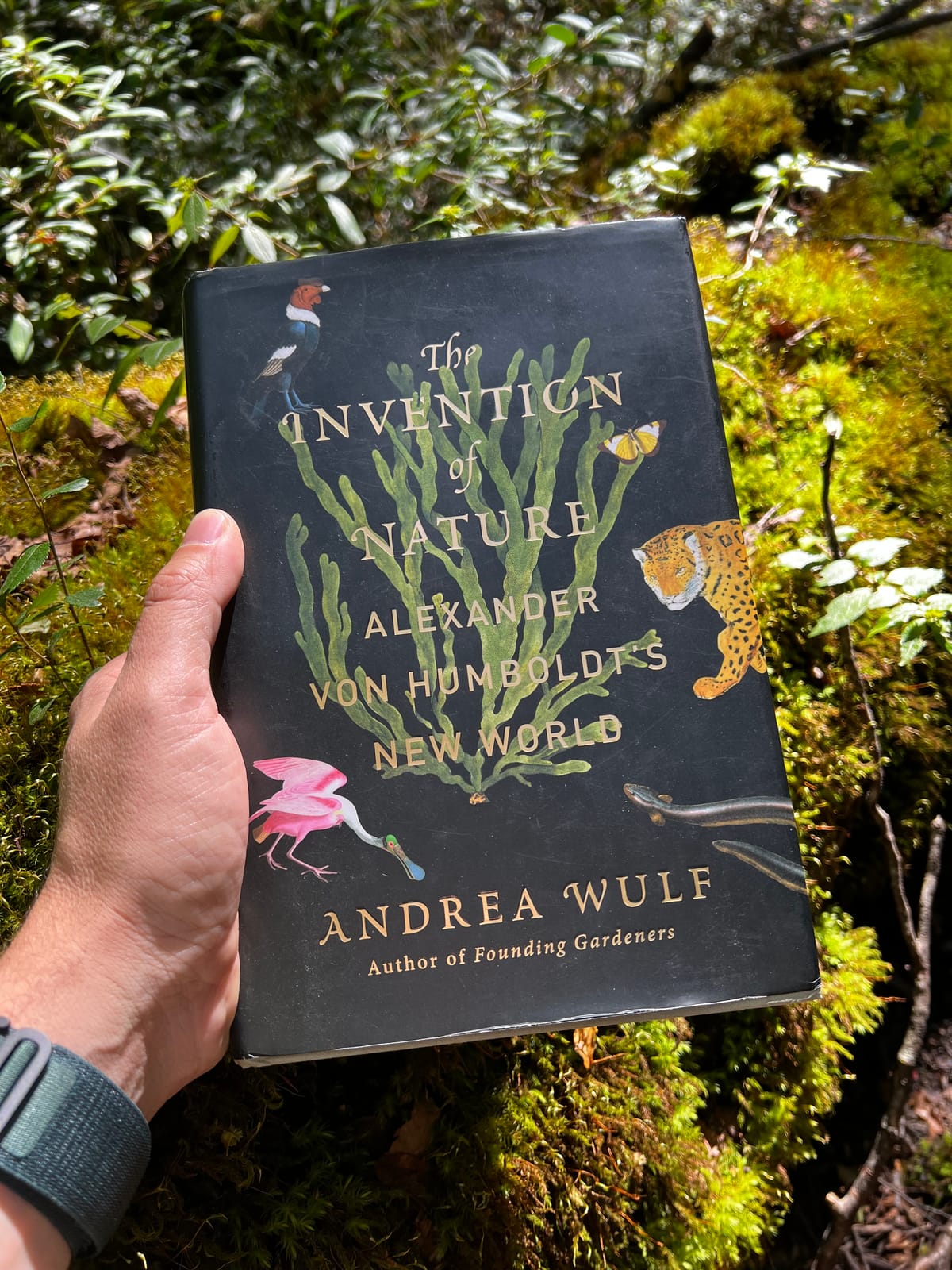
In 2022, I read The Invention of Nature (2015) by Andrea Wulf, and it quickly became one of my all-time favorite books.
Today, we hardly know Humboldt, even though his name graces species, cities, mountain ranges, islands, glaciers, and even a lunar sea. His influence was so great that he was once considered the most famous person in the world. Napoleon was jealous of his fame; Bolívar was inspired by him to liberate Latin America, and Jefferson to expand U.S. territory with an emphasis on scientific knowledge of nature (in fact, the state of Nevada was almost named Humboldt).
Humboldt ignited Darwin’s thinking—carrying Humboldt’s books during his voyage on the Beagle—and awakened in Thoreau the deep connection between nature and spirituality reflected in Walden.
From his explorations in the Americas starting in 1799, where he climbed the Andes equipped with complex instruments and wearing city attire, to his journey through Asia in 1829, crossing the steppes of Russia and China in carriages, Humboldt was a pioneer in recording data about nature with an unprecedented level of detail and persistence.
In doing so, he demonstrated—2 centuries ago—that everything in nature is connected and that humans were changing the climate by altering nature without considering the consequences.
He believed that to truly understand nature, it was necessary to combine scientific precision with artistic sensitivity, a connection that today seems to have been lost.
Wulf’s book is an exhaustive investigation of books, diaries, and letters that intertwines Humboldt’s story with those who felt his influence.
I had the good fortune to meet the author (see fanboy photo of her dedication) and asked her how she made everything flow. She replied that her secret was to document and tag everything she researched in a database, so that when writing, she could easily gather quotes and perspectives from various sources.
A genius who blends science and art as Humboldt would have liked.
